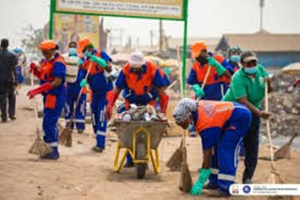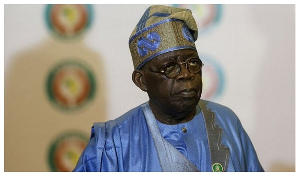General News of Wednesday, 26 February 2020
Source: GNA
Media urged to fact-check information to maintain public trust
The media has been urged to maintain public trust in their reportage by fact-checking their information to ensure credibility, accuracy and reliability, to combat fake news, which is a threat to democracy.
The situation where many a journalist do not do fact-checking has resulted in disinformation and misinformation (or fake news), something that has led to waning public confidence in the media.
Mr Kojo Oppong Nkrumah, the Minister of Information, said this during the launch of Ghana’s first dedicated online fact-checking platform, known as DUBAWA, a Hausa word to wit “verify,” which is being promoted by the Premium Times Centre for Investigative Journalism (PTCIJ).
DUBAWA is a non-partisan verification and rating platform designed to help renew West African journalism through professionalism and a culture of factual public debates, which amplifies truth and accuracy in reporting.
It is one of the three internationally accredited fact-checking platforms in Africa, first established in Nigeria and now an office in Ghana.
Mr. Oppong Nkrumah said 2020 was a major election year and the accuracy of media reportage on the process would go a long way to strengthening the democratic credentials Ghana had chalked in the Sub-region.
“The media must be trusted to do the necessary fact-checking to enhance credibility, accuracy and reliability of the information they churn out as the Ghanaian populace places premium on them for information to make informed choices,” he said.
The Minister said the upsurge in information disorder, through disinformation and misinformation, posed a damaging challenge for public policymaking, responsible journalism, and communal harmony in most communities, therefore the need for the media to get out of their comfort zones to verify information for truthfulness to ensure national unity, cohesion and holistic development.
Misinformation is where false information is shared without necessarily intending to cause harm, which occurs when media people drop their ethical and professional guards when reporting, whereas disinformation or propaganda is where false information is knowingly shared to cause harm.
He, therefore, commended the members and board of the Premium Times Centre for Investigative Journalism for the initiative to train media personnel on rigorous fact-checking, critical to helping resolve the canker of fake news, a major threat to the information industry.
He, however, advised the leadership of DUBAWA to, in their quest to amplify truth, endeavour to present themselves as an honest and independent platform, able to fact-check without bias.
Professor Kwame Karikari, Founder of the Media Foundation for West Africa, and Board Member of DUBAWA, who launched the platform, said for the media to challenge the illegality perpetrated by public office holders and people in leadership position, they must themselves be truthful in the information they disseminate.
“All who want to bare the truth must ensure they themselves are truthful and above board. One little slip and that will erode the confidence people have in your reportage.”
Prof. Karikari said information providers in general, including government, the clergy, teachers, lawyers and the media ought to be responsible with the information they churned out and be accountable for the consequences.
He said DUBAWA had been professional in its attempt to confront illegality and not even one of its works had been challenged.
He added that the platform had come to stay in Ghana and called for public support and funding from independent sources to enable it to spread its tentacles to help clean the media landscape of fake news.
Ms Caroline Anipa, the Programme Officer of DUBAWA, said the platform would help to create fact-checking desks in as many newsrooms as possible, work with journalism training institutions and governments at various levels on digital literacy to champion the acquisition of technical and digital skills for professionalism.
She said it was heart-warming that Ghana was not one of the 70 countries mentioned in a report released by the University of Oxford, United Kingdom, in September 2019, in which governments and political parties used computational propaganda and social media manipulation to shape public life.
“This speaks to the need to build on this decent reputation to expand the footprints of democratic accountability that this country is noted for,” she added.












